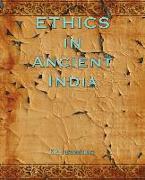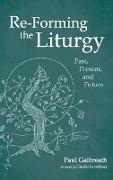- Start
- Ethics In Ancient India
Ethics In Ancient India
Angebote / Angebote:
About the Book
The ultimate goal of a human being, in general parlance, relates to human conduct in society. What relates to human conduct in society is called ethics. The word 'ethics' or 'ethic' means a pattern or norm or code of conduct adopted by a group of people.
Ethical Philosophers formulate and formalize existing standards. Often they propose new standards, new norms and patterns of conduct for observance by the groups. The standards lead afar encompassing considerations of, among others, duty, responsibility, equality, justice, rights, legitimate authority and benefit.
Ethical deliberation begins with specific problems of individuals facing a choice and being uncertain about what to do. Every human being faces one problem or other, and deliberates to some extent in search of a satisfactory solution.
Moral virtues such as liberality, temperance, benevolence, charity come about as a result of habit. That is why its name ethike - ethics is derived from the word ethos (habit). It, therefore, follows that none of the moral virtues arises in us by nature. In a way, we are adapted by nature to receive them, and are made perfect by habit.
Ethics is, therefore, 'the discipline dealing with what is good and bad, or right and wrong, or moral duty and obligation.' The word 'conduct' implies only persons in as much as only persons conduct themselves, while animals behave, machines function and stars move.
The treatise Ethics in Ancient India is a compendium of the ethics elaborated in great detail in Mahabharata, Arthasastra, Bhagavata Purana and Brahma Purana. The authors of these works have narrated ethics in their entire gamut through the personages, known in those works as epitomes of flawless ethical conduct. The object may be to give authenticity to the principles of ethics so enumerated, as they reflect the standards of ethics then sought to be followed in the society at large, at the time of their compilation.
Sri Aurobindo puts the question: 'Is there at all, or is there still the secret of the Veda?'
We have in the Rig-veda Samhita, a body of sacrificial hymns couched in a very ancient language. The hymns present a number of almost insoluble difficulties. 'Yet these obscure and barbarous compositions have had the most splendid good fortune in all literary history. They have been the reputed source not only of some of the world's richest and profoundest religions, but of some of its subtlest metaphysical philosophies, ' in the words of Sri Aurobindo.
The Rig-veda is itself the one considerable document that remains to us from the early period of the human thought when the spiritual and psychological knowledge of the human race was concealed in a veil of concrete and material figures and symbols. The reasons why it so happened may now be difficult to determine.
One of the leading principles of the Vedic mystics is sacredness, secrecy of self-knowledge and the true knowledge of the gods. For the mystics, this wisdom is unfit, rather dangerous, to the ordinary human mind. It is liable to perversion, misuse and loss of virtue if revealed to vulgar and unpurified spirits.
About the Author
K.R. Paramahamsa was a retired civil servant in India borne on the Indian Administrative Service. He has created the website Sri Sathya Sai Veda Pratishtan at www.vedamu.org, a repository of all the Vedic literature available in India in Devanagari and Grantha scripts. Besides, the website hosts 415 hours of Vedic chanting of ten Veda sakhas in different modes in a representative way. He is Adjunct Faculty of the Hindu University of America in Florida. He is now a resident of the Ashram of Bhagavan Sri Sathya Sai at Prasanthi Nilayam-515134, India in pursuit of spiritual upliftment.
Folgt in ca. 15 Arbeitstagen




